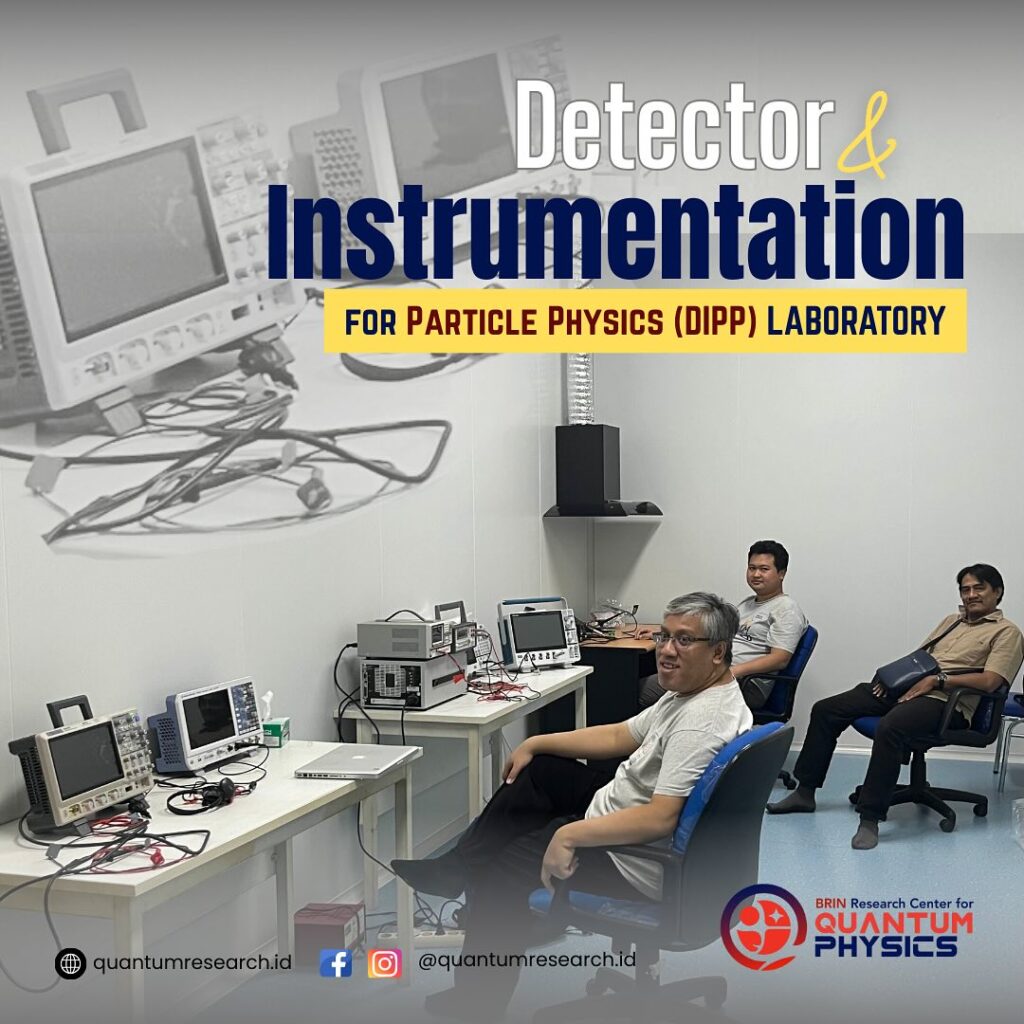🔬 Laboratories
🔬 Research Laboratories for Quantum Science and Technology in Indonesia
At the BRIN Research Center for Quantum Physics, we develop cutting-edge experimental facilities that support both fundamental and applied quantum research. Our laboratories provide researchers, students, and collaborators with access to world-class instrumentation for exploring quantum physics, optical physics, and particle physics. Each lab is dedicated to advancing Indonesia’s scientific and technological capabilities while remaining open for collaborative research and innovation. Researchers, collaborators, and students interested in conducting experiments or joint projects can request access through BRIN’s Deputy of Research and Infrastructure, which manages laboratory access and experimental costs via an integrated platform called ELSA.
🔥 Pulsed Laser Deposition (PLD) Laboratory
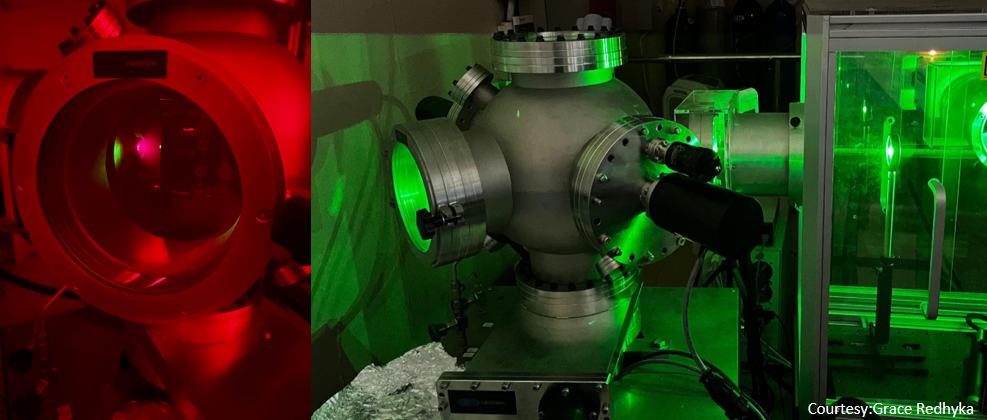
The Pulsed Laser Deposition (PLD) Laboratory supports experimental research in the fabrication of thin films and nanostructured materials. Our research center particularly utilizes PLD techniques to produce a wide range of materials, including magnetic insulators and transition-metal dichalcogenide (TMD)-based layered compounds for advanced electronic, magnetic, and optical applications.
In the PLD process, a high-powered Nd:YAG pulsed laser is directed onto a solid target within a high-vacuum chamber (typically around 10⁻⁴ Pa), causing the target material to ablate and form a plasma plume. The ablated species then condense and deposit onto a heated substrate, up to 900 °C, allowing the controlled growth of thin films with precise composition and thickness.
🧬 Chemical Vapor Deposition (CVD) Laboratory
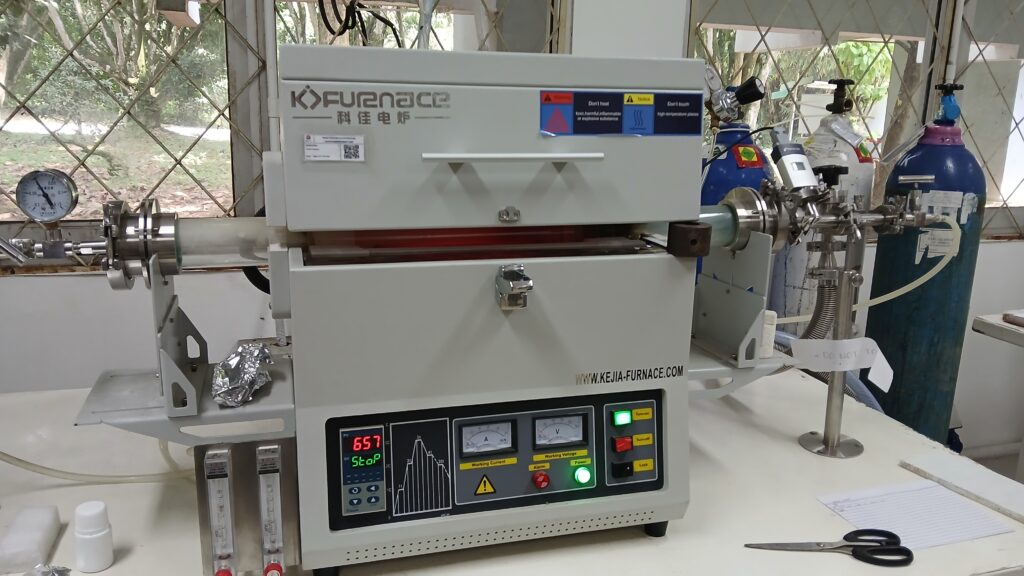
The Chemical Vapor Deposition (CVD) Laboratory plays a crucial role in supporting high-quality large-scale deposition and synthesis of two-dimensional (2D) transition-metal dichalcogenide (TMD) layered materials, such as molybdenum disulfide (MoS₂). These high-quality thin films are essential for advancing various next-generation technologies, including high-performance electronics, optoelectronic devices, sensors, and flexible nano-systems. The facility is equipped to enable control over film thickness, uniformity, and crystal quality, ensuring reliable material production.
💎 Single-Crystal Growth Laboratory
The single-crystal growth laboratory, which is primarily used by the Quantum Materials Research Group in the case of our research center, focuses on the synthesis and characterization of high-quality bulk single crystals. The lab is equipped with a Bridgman system for controlled crystal growth, a Laue X-ray diffraction setup for crystal orientation, and vacuum sealing facilities to support the flux growth technique.
Bridgman single-crystal growth instrument
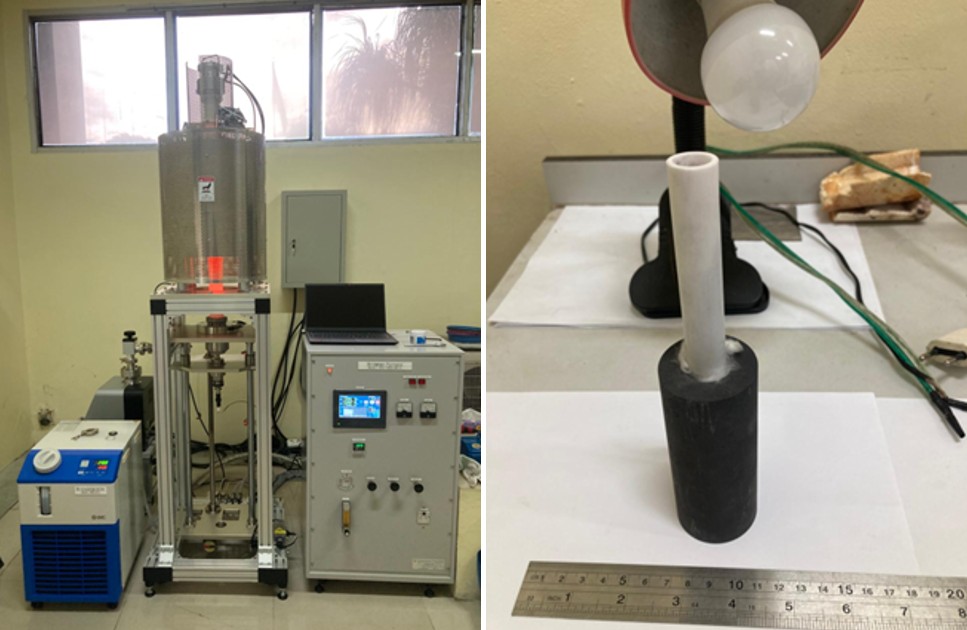
The Bridgman single-crystal growth instrument is designed to produce bulk single crystals from a molten phase using a controlled temperature gradient. In this method, material sealed inside a crucible or ampoule is melted and then slowly solidified as it passes through a hot-to-cold thermal gradient, promoting directional crystal growth. By carefully controlling the growth rate and temperature profile, the Bridgman technique enables the formation of large, high-quality single crystals with reduced grain boundaries. This method is widely used for growing intermetallic compounds, superalloys, and strongly correlated-electron materials, making it a cornerstone instrument for fundamental studies and functional material development.
Laue X-ray diffraction instrument
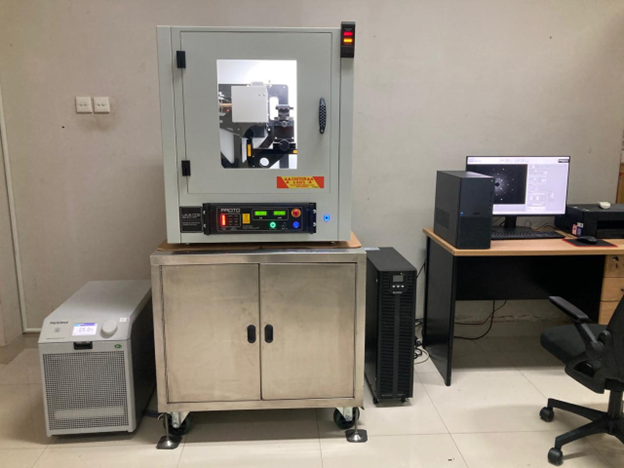
The Laue X-ray diffraction instrument is used to determine the crystallographic orientation and quality of single crystals. By illuminating a stationary crystal with a polychromatic (white) X-ray beam, the instrument produces a characteristic Laue diffraction pattern that reflects the symmetry and orientation of the crystal lattice. This technique enables rapid, non-destructive alignment of single crystals prior to advanced measurements such as transport, magnetic, optical, or neutron and synchrotron experiments. Sharp, well-defined diffraction spots indicate high crystal quality. The Laue instrument is an essential diagnostic tool in single-crystal research and quantum materials laboratories.
Vacuum Sealing
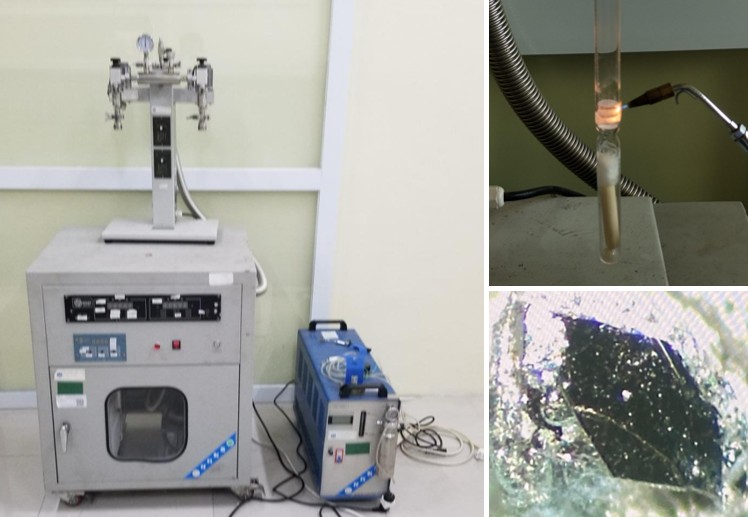
Vacuum sealing is used in the flux method for single-crystal growth. In this method, the target material is dissolved in a molten flux that acts as a solvent, enabling controlled crystal growth as the system is slowly cooled. During cooling, crystals nucleate and grow from the supersaturated solution, often forming well-defined facets with low internal strain. The flux method is particularly suitable for complex intermetallics, heavy-fermion compounds, and quantum materials that are difficult to grow by conventional melt techniques, making it a key method for fundamental and functional materials research.
💡 Quantum Defect Magnetometry Laboratory
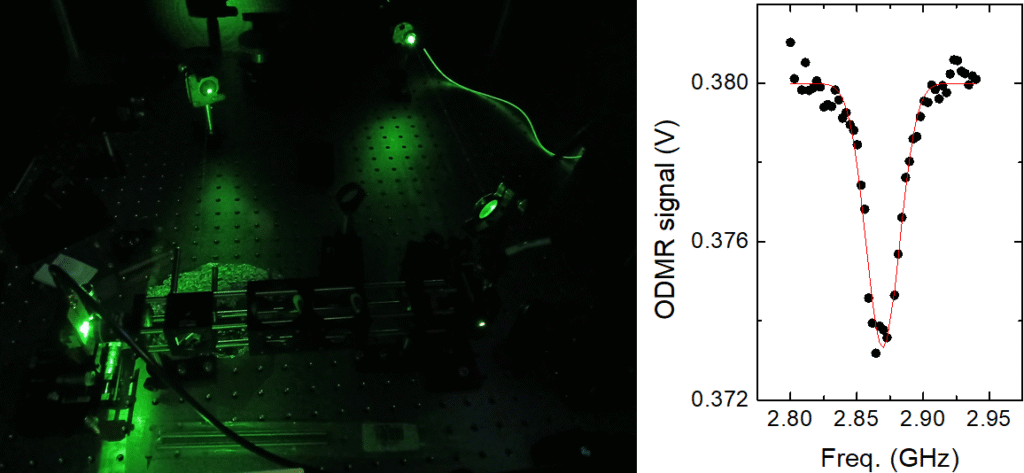
Quantum Defect Magnetometry Laboratory focuses on developing and applying solid-state quantum sensors based on atomic-scale defects, such as nitrogen-vacancy (NV) centers in diamond. Our research explores spin dynamics, coherent control, and quantum metrology techniques to achieve high-sensitivity and high-resolution magnetic field measurements under ambient and extreme conditions.
We develop home-built quantum microscopy platforms that integrate confocal and wide-field optical detection with microwave control and magnetic field modulation. These platforms enable nanoscale magnetic imaging using NV centers, allowing us to probe spin and magnetic dynamics in various materials. The combination of quantum sensing and in-house instrumentation provides a flexible platform for advancing both fundamental studies and practical applications of quantum defect magnetometry. Other optically active spin defect centers in other wide band-gap semiconductors, such as hexagonal-BN and SiC, are currently being investigated as well.
⚛️ Detector and Instrumentation for Particle Physics (DIPP) Laboratory
The Detector and Instrumentation for Particle Physics (DIPP) Laboratory focuses on the research and development of advanced detector technologies for high-energy and nuclear physics experiments. The laboratory’s expertise covers a broad range of topics, including scintillator and semiconductor-based detectors, front-end electronics, detector signal processing, data acquisition systems, calibration, performance optimization, and GEANT4-based detector simulations.
As part of the BRIN Research Center for Quantum Physics, the DIPP Laboratory aims to strengthen national capability in experimental particle physics and to advance the development of particle detection technologies. The lab also supports applied research in particle-physics-based imaging, contributing to fields such as geotechnics, civil engineering, archaeology, and nuclear security through cosmic-ray muon imaging techniques.
The DIPP Laboratory is an active member of the ALICE Collaboration at CERN and contributes to the ALICE detector upgrade projects for LHC Run 4 (2030–2033) and Run 5 (2036–2041). Through collaborations with national universities (UM, UNJ, UI, IPB, and others) and international research institutions (CERN, RIKEN, RAL, SLRI), the lab provides opportunities for young researchers to participate in frontier experiments.
